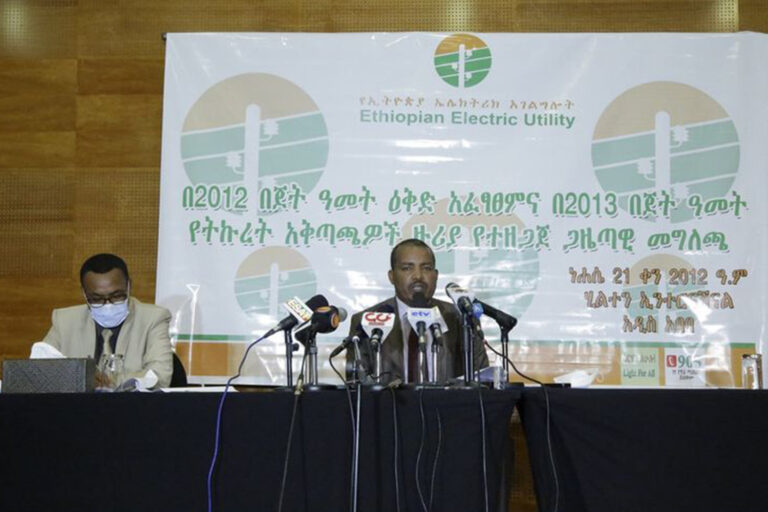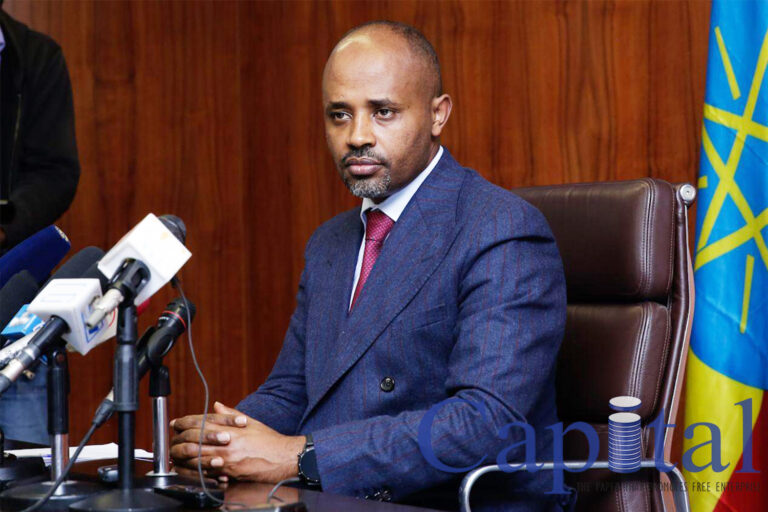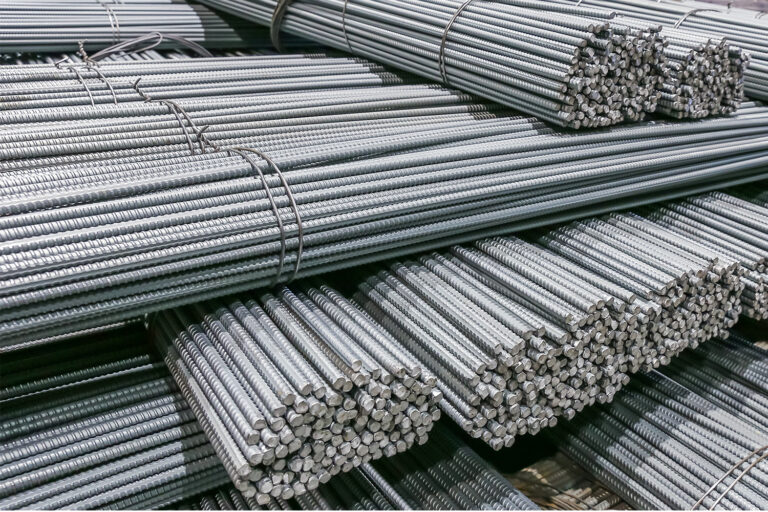By Muluken Yewondwossen
Installing of power factor correctors that was delayed for almost a decade because of Metal and Engineering Corporation’s (MetEC) failure to deliver the product will be commenced in the current budget year. All big factories will also be obliged to install loading adjustment device.
The idea that force factories to install power factor correctors has been designed about a decade ago and in 2011 MetEC was assigned to produce the smart devices that will be installed at selected factories.
Shiferaw Telila, CEO of Ethiopian Electric Utility (EEU), told Capital that the device produced by MetEC, did not met the standard of EEU thus were rejected. “That was one of the major reasons for the delay and disagreement between the two public enterprises,” Shiferaw said.
“Since the reform leaders that controlled the management at MetEC approached EEU to correct the faulty devices and come up with a product that meets the required standards,” the CEO further said.
“Since we agreed to work together they have produced 10 sample devices that were tested at factories. The devices passed the test,” he added.
He said that now the corporation is producing the approved smart devices, which automatically adjust the power load and supply sustainable energy.
“In this budget year all factories will be fully installed with the power factor correctors,” Shiferaw said.
Factories are responsible to cover the cost for the installation of the power factor, which help to manage energy loss.
In the future other small industries will install the devices to fulfill energy efficiency, according to the CEO.
Installing these devices guarantees efficient use of power and it is expected to adjust the difference between real power and apparent power in the use of electricity.
More than 2,000 factories are expected to be covered on the scheme in this budget year.
EEU is responsible to work on the network line of less than 132 KV, which is mainly a service for the general public, while Ethiopian Electric Power (EEP) manages the lines above 132kv, and generation alongside distribution besides managing the huge projects.
Ethiopia is one of the countries who have less access to power. EEU has 3.3 million customers and in the current budget year it has targeted to add one million new customers.
Totally 44 percent of the population is included on the access rate and of that 33 percent of the population access power from the national grid and 11 percent from off grid.
In related development, in the last budget year EEU has secured over 11 billion birr and met 80 percent of its target. In the 2019/20 budget year it has targeted to amass 13.75 billion birr.
It has paid 6 billion birr for EEP, who is in charge of supplying power for EEU.
In the year the utility projected to collect 11.3 billion birr from transmission line installation and connection service, while the actual achievement was only 34 percent and stood at 3.9 billion birr.
Lack of required equipment supply and foreign currency shortage is stated as the reason for the low performance.
The foreign currency issue is not only the problem for us but to mitigate the problem some of the equipments like conductors and transformers and different accessories are supplied by local producers to bypass problems on operational works.
“We are substituting supplying accessories that were imported from foreign markets. For instance the supply of utility wood pole, which was imported, has been replaced by locally produced concrete towers,” the CEO told Capital.
He added that there are three conductor factories that operate in Ethiopia besides the ten transformer and cable manufacturers. “The local contractor’s capacity has now been expanded and covers 80 percent of the total project. The balance 20 percent is awarded for foreign contractors,” he explained.
In the current budget year EEU has targeted to earn 16.5 billion birr from energy sales, 8 billion birr from different sources and 1.1 billion birr from service charge.
Finally, Power Factor Correctors to be introduced
Ethiopia deposits instrument of accession to NYC
Ethiopia deposited an instrument of accession to the Convention on the Recognition and Enforcement of Foreign Arbitral Awards/New York Convention (NYC) on Thursday, August 27.
On 13 February 2020 after Ethiopia’s parliament approved accession to the 1958 New York Convention, Ethiopia became the 163rd state signatory and the 39th African state to accede following the recent accessions of the Seychelles, Cabo Verde and Sudan.
The Council of Ministers supported the move to join the Convention in December 2019 and the House of People’s Representatives approved the accession on 13 February 2020.
The Convention will come into force on the 90th day following the deposit of its instrument of ratification or accession.
“In Ethiopia, it has always been a challenge for investors to determine the seat of the arbitration. Choosing whether or not to designate Ethiopia as the seat of arbitration always came with an opportunity cost. Now that Ethiopia has formally ratified the New York Convention on the Recognition and Enforcement of Foreign Arbitral Award (“NYC”), investors are ideally no longer tasked with concerns of enforcement in Ethiopia of foreign arbitral awards,” a lawyer told Capital.
“The ratification of the NYC comes at a time where the country is undertaking major economic and legal reforms including the privatization and liberalizations of mega sectors and enterprises such as the telecom and many others. As a major part of the reform process, Ethiopia has just recently enacted a new investment law whereby sectors that were formerly closed are now open for foreign investment,” the lawyer further added.
Ethiopia will apply the Convention on the basis of reciprocity to the recognition and enforcement of awards made only in the territory of another contracting State, and only to differences arising out of legal relationships, whether contractual or not, which are considered as commercial under the laws of Ethiopia.
Government settles 6 billion birr back payment for contractors
The government settled payments that were not paid for about seven years for contractors who carried out different works in different parts of the country.
Due to lack of adequate finance or budget contractors were claiming payment however they undertook the projects on their schedule.
One of the sectors was the road projects that were carried out by local and overseas companies.
Eyob Tekalign, State Minister of Finance, said that in the past budget year the government settled about six billion birr worth of outstanding payment for contractors, who were engaged on road sector development.
“The outstanding payment certificates that were not paid for 7 years have been paid in the 2019/20 budget year,” he added.
Companies claimed that even though they concluded their duty and requests for payment due to lack of finance they were not paid according to their agreement.
The State Minister said that the 2019/20 fiscal year was concluded in progressive manner and registering good changes in development projects performance and economic growth, meanwhile the global pandemic, COVID 19, occurred.
“The finance sector activity is a good example to show for the promising economic activity or recovery even in the post COVID 19 period,” he says adding “moreover, few years ago cement factories argued that the sector is saturated but we observed now that the supply is unable to meet the demand.”
This week Ministry of Trade and Industry announced that anyone who has foreign currency account can import cement to fill the demand.
“In the ended budget year the government revenue has increased by 30 percent meanwhile the pandemic occurred as of March in the country and the first month of the 2020/21 budget year has surpass the projection,” Eyob explained.
“It is recalled that the Grand Ethiopian Renaissance Dam has been run as per the schedule in the year and other projects have also gone with the target in the year,” he added saying “the Ethiopian economy that have dynamic resilience is going at its strongest level.”
He amplified the success registered on debt GDP ratio. The government also disclosed that the country’s foreign debt has dropped by about five percentages and stood at 26 percent.
According to Eyob, the macroeconomic major challenge is inflation and the government is working tirelessly to improve it.
Corporation starts moving rebar from Djibouti
The Ethiopian Construction Works Corporation (ECWC) announced that its rebar dumped at Djibouti port for almost half a year is now being moved to the country.
It has been stated that there were high amount of rebar and wire rod raging from 6mm to 32mm stored in the port area at Djibouti, because the corporation was unable to access finance for the settlement of customs duty and transit.
Tinfu Muche, Public Relation Head of ECWC, said that transporting the product from Djibouti was delayed because the state owned corporation was unable to pay the duty and maritime transit fee.
Meanwhile Tinfu did not give confirmation, sources said that the Corporation had asked the Ethiopian Customs Commission (ECC) for credit service to import the product, but ECC denied the request.
Tinfu told Capital that now the Commercial Bank of Ethiopia disbursed the long awaited 500 million birr loan to settle the stated clearance fees and now the product, which will be an input for developmental projects that the corporation handles, is being transported in the country.
“The product and loan disbursement impediment have been also known by the Office of the Prime Minister and now the rebar that is 15,400 metric ton is being transported from Djibouti,” he added.
“We expected the product that consumed USD 8.5 million will be transported in a month time,” he said.
Tinfu said that such kind of volume would not be available locally and on the aim to solve the rebar scarcity and improve the system ECWC imported the bulk product. “The product will cover the project demand for the coming two years,” he explained.
Initially the corporation awarded the supply of about 10,000 metric ton for local manufacturer, Steely RMI, in 2018 but the company was unable to import the product on time due to lack of foreign currency to import billet which is used as a raw material.
About a year ago the corporation has again floated and awarded the bid to a Turkish company. At the time there were a claim that the foreign currency that would be paid for the foreign suppliers can be used to import raw material for local industries, that can supply the product for ECWC.
The sector actors argued that the local manufacturers have over capacity compared with the local demand; however the foreign currency shortage forced them to run significantly under their capacity. On the other hand rebar users are still accessing the foreign currency to import the finished material at the cost of local producers who holds tens of thousands of labour.
Bekele Desta, Basic Metal Technology Development Directorate Director at Metals Industry Development Institute (MIDI) told Capital that the steel industry has 8 million metric ton production capacity per annum; and the rebar sector took the lion’s share and stood at 5 million metric tons.
“Even though the capacity is very high because of lack of input the actual rebar production is limited to about 400,000 metric tons, which is less than 10 percent from the actual capacity,” he added.
Bekele said that currently the country’s rebar demand is 700,000 metric ton per annum, “the finished product imported per annum is equal with the local production.”
In an evaluation meeting held on Thursday August 27 on MIDI’s last year performance and strategy for the current budget year the issue was raised by the institute.
At the meeting unfair LC allocation at banks is stated as a major challenge for the manufacturing sector.
“It is well know that the local rebar industry has huge capacity that can compete in the continent not only on quantity but quality level, but finished good importers have better access of foreign currency than industrialists,” Tilahun Abay, Planning, Policy Study and Information Management Directorate Director at MIDI said.
“In real terms the manufacturers should get attention and support but on the ground they are neglected from accessing foreign currency to import raw material,” he told Capital.
In the last budget year rebar importers have secured USD 303 million from banks and they imported 529,000 metric tons, “meanwhile local manufacturers accessed only USD 141 million in the same period, which is less than half of the amount that finished product importers secured,” Tilahun said.
“It is very disappointing,” he added.
Tinfu stated that the foreign currency is secured by an approval from the National Bank of Ethiopia.
Tinfu declined the claim that the Corporation is formed for profit, “if there is a problem on the procurement process there is a space to file the case for Public Procurement and Property Administration Agency, a regulatory body for federal government procurement, so far there is not any.”
The Public Relation Head argued that the bid was international, under the country regulation and locals participated, while the foreign bidder won the bid.
In the current budget year ECWC has awarded projects worth 20.7 billion birr that needed the supply of ample material to run under schedule, “totally we have a project worth 47.7 billion birr that needs massive supply.”
Regarding local suppliers he argued that they have got a chance but were unable to meet the timeframe, while local industries refute the argument and said that they were performing properly if the foreign currency was available properly.
“Beside that there have been different problems like volatile price and slow supply faced when we buy products from local sources on limited volume. On the aim to alleviate the problem the management of ECWC evaluated the situation and tabled the solution for relevant government body for approval,” he explained.
“Based on the direction of the government we have introduced bulk procurement that will feed projects without gap,” he added.
ECWC is established in 2015 with the amalgamation of Ethiopian Road Construction Corporation, Ethiopian Water Works Construction Enterprise and Ethiopian Prefabricated Building Parts Production Enterprise.






